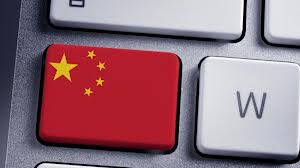I have the privilege to do repeated work in China. Frequent and regular trips have grown a respect, awe and amazement at what I see and encounter. My ‘Chinese experience’ and continuous education has fueled a deeper curiosity and appreciation for the unfolding story that is China. We are living in a time that history will judge as the ‘Chinese Century’.
 Of course it is a nation that has tremendous challenges, but then again, what country is free of challenge? It is a country better understood as regions given its vastness and diversity; it is a country renowned for its ‘cheapness’ and ability to copy…both of which will soon end (if that is you take to heart Shaun Rein’s messages in his two excellent books, End of Cheap China & End of Copy China). It is a country that has rapidly consumed the global economy, gobbled up leading brands (Volvo and Hoover to name but two) and will soon be the front-runner amongst nations when measured by the economic yardstick.
Of course it is a nation that has tremendous challenges, but then again, what country is free of challenge? It is a country better understood as regions given its vastness and diversity; it is a country renowned for its ‘cheapness’ and ability to copy…both of which will soon end (if that is you take to heart Shaun Rein’s messages in his two excellent books, End of Cheap China & End of Copy China). It is a country that has rapidly consumed the global economy, gobbled up leading brands (Volvo and Hoover to name but two) and will soon be the front-runner amongst nations when measured by the economic yardstick.
The sheer numbers emanating from China are hard to comprehend. In 2013 China became the largest trader of goods in the world, overtaking the USA with the value of imports and exports reaching $4.16 trillion. Africa has been a major benefactor of China’s flexing of its economic muscle. In 1950 China’s trade with Africa was $10 million; by 1980 that had grown to $1 billion and in 2012 that figure reached $220 billion. China’s direct investment in Africa has grown at an annual rate of 20.5% and trade between China and the Continent is expected to top $385 billion by next year (2015). Most of China’s Africa imports are mineral products (80%). Whilst China has signed significant railway contracts with both Nigeria and South Africa the country has also invested heavily in infrastructure projects across the Continent.
The whole point is simply this: get used to China!
Smart leaders understand the need to both understand China and build relationship with China. This much is simply not optional. Chinese interests in both Africa and elsewhere might well polarise opinion as to whether they represent a threat or opportunity. The reality is they might well be both a threat and an opportunity and which one you experience, might well be determined by you!
Here would be nine simple ‘truths’ that have underpinned my Chinese experience / education – something that still has a long way to run and one that I suspect will never come close to reaching complete comprehension:
1. Engaging with China is not optional
2. You can’t understand China using your own ‘frame of reference’
3. To understand China one has to understand ‘Guangxi’ – what it is and how it operates
4. There is no excuse not to equip oneself with knowledge about China. You cannot read any business publication that doesn’t reflect something of the emergent Chinese story. Read those articles!
5. Find Chinese sources for developing your knowledge and understanding In other words, don’t merely rely on western interpretations and understandings when it comes to deconstructing China
6. Ask questions and listen carefully to what is said (and not said) in response
7. Explore China ‘beyond the obvious’ and adopt the posture of an ‘Observer’ in order to get beyond the superficial
8. Be slow to ‘judge’ and be open to the possibility that what you ‘know’ about China might need to be unlearnt, deconstructed and even dismissed entirely
9. Read about China’s history and culture
China knows a lot more about the ‘outside world’ than does that world about China. For example, to test your knowledge about China, see if you can answer the following basic questions?
• Who is the president of China?
• Can you name one major Chinese sports star?
• Can you name a popular Chinese musician or music group?
• What is ‘Alibaba’?
• Excluding Beijing, Shanghai and Hong Kong, name three other Chinese cities
• Can you name two Chinese provinces?
• What countries share borders with China?
• Can you name any three leading Chinese’s brands?
When it comes to China the message is clear: Up your game.
It is the smart move!

